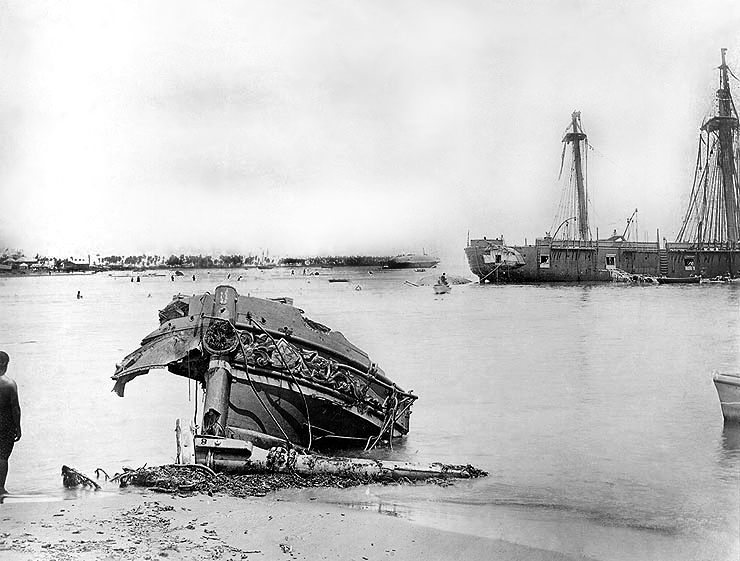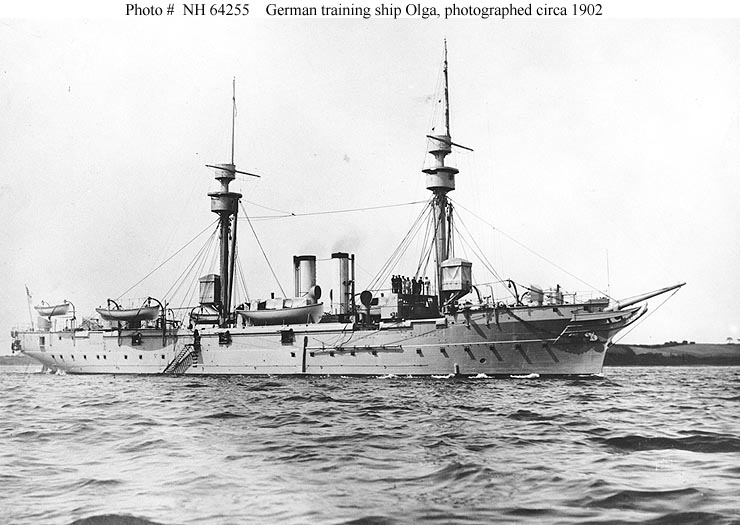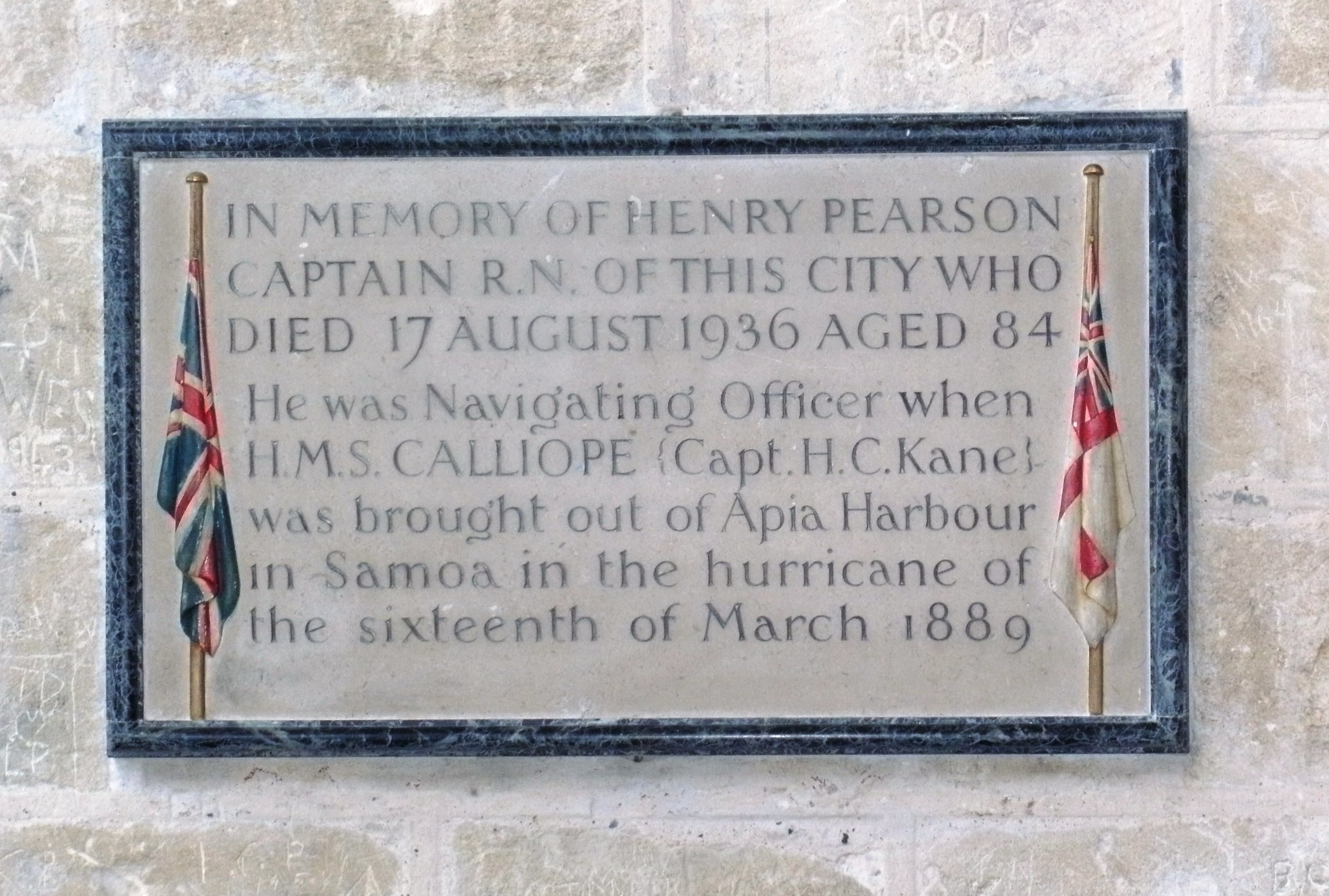1889 Apia cyclone on:
[Wikipedia]
[Google]
[Amazon]
The 1889 Apia cyclone was a

 When the cyclone struck the result was catastrophic. The local people had taken themselves to safety well before the storm struck, but the ships in the bay only began to evacuate at the very last minute, and thus were crowding towards the entrance to the bay when the hurricane hit. Only escaped, making less than one
When the cyclone struck the result was catastrophic. The local people had taken themselves to safety well before the storm struck, but the ships in the bay only began to evacuate at the very last minute, and thus were crowding towards the entrance to the bay when the hurricane hit. Only escaped, making less than one
 Some unreferenced and early sources claim that the ''Olga'' was a Russian ship, and that the ''Nipsic'' was Japanese. This is not true, and is probably caused by those names sounding "ethnic" to an uninformed observer.
Some unreferenced and early sources claim that the ''Olga'' was a Russian ship, and that the ''Nipsic'' was Japanese. This is not true, and is probably caused by those names sounding "ethnic" to an uninformed observer.
tropical cyclone
A tropical cyclone is a rapidly rotating storm system characterized by a low-pressure center, a closed low-level atmospheric circulation, strong winds, and a spiral arrangement of thunderstorms that produce heavy rain and squalls. Dep ...
in the South Pacific Ocean
The Pacific Ocean is the largest and deepest of Earth's five oceanic divisions. It extends from the Arctic Ocean in the north to the Southern Ocean (or, depending on definition, to Antarctica) in the south, and is bounded by the conti ...
, which swept across Apia
Apia () is the capital and largest city of Samoa, as well as the nation's only city. It is located on the central north coast of Upolu, Samoa's second-largest island. Apia falls within the political district (''itūmālō'') of Tuamasaga.
...
, Samoa
Samoa, officially the Independent State of Samoa; sm, Sāmoa, and until 1997 known as Western Samoa, is a Polynesian island country consisting of two main islands ( Savai'i and Upolu); two smaller, inhabited islands ( Manono and Apolima); ...
on March 15, 1889, during the Samoan crisis
The Samoan Crisis was a standoff between the United States, the German Empire, and the British Empire from 1887 to 1889 over control of the Samoan Islands during the First Samoan Civil War.
Background
In 1878, the United States acquired a fuel ...
. The effect on shipping in the harbour was devastating, largely because of what has been described as "an error of judgement that will forever remain a paradox in human psychology".
The growing storm
Events ashore had led to upheaval in the Pacific nations and colonies. Both the United States and Imperial Germany saw this as a potential opportunity to expand their holdings in the Pacific throughgunboat diplomacy
In international politics, the term gunboat diplomacy refers to the pursuit of foreign policy objectives with the aid of conspicuous displays of naval power, implying or constituting a direct threat of warfare should terms not be agreeable to ...
. In order to be ready should such an opportunity arise, both nations had dispatched squadrons to the town to investigate the situation and act accordingly. A British ship was also present, ostensibly to observe the actions of the other nations during the Samoan upheavals.
During the days preceding the cyclone of March 15, increasing signs were visible of the impending disaster. March was cyclone season in this area, and Apia had been hit by a cyclone just three years previously, which the captains of the ships heard about from local people, especially as the weather began to change and the atmospheric pressure
Atmospheric pressure, also known as barometric pressure (after the barometer), is the pressure within the atmosphere of Earth. The standard atmosphere (symbol: atm) is a unit of pressure defined as , which is equivalent to 1013.25 millibars, ...
began to fall. The captains were experienced Pacific seamen, as were many members of their crews, and they all saw the approaching signs of impending disaster, just as they knew that the only chance they had of riding out the winds was to take to the open sea.
Apia is an exposed harbour, unprotected by high ground or an enclosing reef. The northern part of the harbour is open to the Pacific, and thus wind and waves can sweep through the area and drive any shipping which remained in the bay onto the reefs at the Southern end, or toss them right up the beach. However, even though the officers of the various navies were well aware of the necessary procedures in the face of such a threat, none made a move. This has been attributed to jingoism
Jingoism is nationalism in the form of aggressive and proactive foreign policy, such as a country's advocacy for the use of threats or actual force, as opposed to peaceful relations, in efforts to safeguard what it perceives as its national int ...
or national pride; none of the men in the harbour was willing to admit in front of the other nations' navies that they were afraid of the elements, and so refused to take precautions, and refused to allow the merchant ships which accompanied them to move either, leaving thirteen ships, some larger vessels, at anchor close to one another in Apia harbour.
The cyclone

 When the cyclone struck the result was catastrophic. The local people had taken themselves to safety well before the storm struck, but the ships in the bay only began to evacuate at the very last minute, and thus were crowding towards the entrance to the bay when the hurricane hit. Only escaped, making less than one
When the cyclone struck the result was catastrophic. The local people had taken themselves to safety well before the storm struck, but the ships in the bay only began to evacuate at the very last minute, and thus were crowding towards the entrance to the bay when the hurricane hit. Only escaped, making less than one knot
A knot is an intentional complication in cordage which may be practical or decorative, or both. Practical knots are classified by function, including hitches, bends, loop knots, and splices: a ''hitch'' fastens a rope to another object; a ...
against the oncoming wind and sea; she dragged herself to the open sea, despite being less than six feet from a reef at one point. Once out at sea she was easily able to ride out the ensuing winds. Her survival is attributed to her size (2,227 tons) and her more powerful and modern engines, built only five years before, as compared to the ten or twenty years for many of the other ships.
As for the other ships, chaos reigned in the harbour. was tossed against the beach in the afternoon, dragged back into the sea and wrecked on a reef at 10 p.m. that evening, although the majority of her crew survived unhurt and were able to participate in the ensuing rescue operation. was smashed into the same reef in the early afternoon, and her surviving crew spent a miserable day and night clinging to her rigging before being rescued, by which time 43 of her complement had drowned. was thrown high on the beach with eight of her crew missing or dead and her internal systems totally wrecked. She would however later be refloated and eventually reconstructed in Hawaii
Hawaii ( ; haw, Hawaii or ) is a state in the Western United States, located in the Pacific Ocean about from the U.S. mainland. It is the only U.S. state outside North America, the only state that is an archipelago, and the only stat ...
.
The German ships fared much worse: came off best, thrown high onto the beach where she was wrecked but many of her crew survived, escaping onto higher ground. and were less fortunate, because they were caught at the harbour mouth by the initial blow and were bodily picked up and smashed together. ''Eber'' sank in deep water, while ''Adler'' came to rest on her side, on the reef. In total, 96 men from their crews drowned in the storm, and both ships were totally destroyed. All six of the merchant ships remaining in the harbour were wrecked, and the death toll was well over 200 sailors from several nationalities.
The incident is often cited as a clear example of the dangers of putting national pride before necessity, especially in the face of natural disaster
A natural disaster is "the negative impact following an actual occurrence of natural hazard in the event that it significantly harms a community". A natural disaster can cause loss of life or damage property, and typically leaves some econ ...
. The incident did not blunt the Pacific ambitions of any of the imperial powers involved in the disaster. However, the Germans and British continued to make territorial gains amongst the Samoan islands and New Guinea, whilst the United States focused on the Philippines
The Philippines (; fil, Pilipinas, links=no), officially the Republic of the Philippines ( fil, Republika ng Pilipinas, links=no),
* bik, Republika kan Filipinas
* ceb, Republika sa Pilipinas
* cbk, República de Filipinas
* hil, Republ ...
and Micronesia
Micronesia (, ) is a subregion of Oceania, consisting of about 2,000 small islands in the western Pacific Ocean. It has a close shared cultural history with three other island regions: the Philippines to the west, Polynesia to the east, ...
, although more care was taken to respect the weather phenomena of the Pacific from this point on.
Ships
Notes
 Some unreferenced and early sources claim that the ''Olga'' was a Russian ship, and that the ''Nipsic'' was Japanese. This is not true, and is probably caused by those names sounding "ethnic" to an uninformed observer.
Some unreferenced and early sources claim that the ''Olga'' was a Russian ship, and that the ''Nipsic'' was Japanese. This is not true, and is probably caused by those names sounding "ethnic" to an uninformed observer.
Robert Louis Stevenson
Robert Louis Stevenson (born Robert Lewis Balfour Stevenson; 13 November 1850 – 3 December 1894) was a Scottish novelist, essayist, poet and travel writer. He is best known for works such as '' Treasure Island'', ''Strange Case of Dr Jekyll ...
wrote an account of this disaster, differing from this article in '' A footnote to history''.Project Gutenberg online text of ''A Footnote to History, Eight Years of Trouble in Samoa''
References
Further reading
* Andre Trudeau, Noah. "'An Appalling Calamity'-In the teeth of the Great Samoan Typhoon of 1889, a standoff between the German and US navies suddenly didn't matter." ''Naval History Magazine'' 25.2 (2011): 54-59. * . * .External links
* {{DEFAULTSORT:1889 Apia cyclone Apia, 1889 Cyclone 1889 Apia cyclone Apia cyclone Unknown-strength tropical cyclones 19th century in Apia